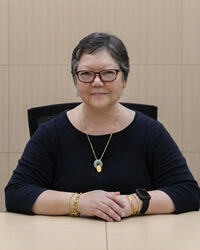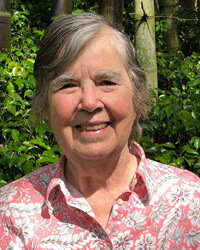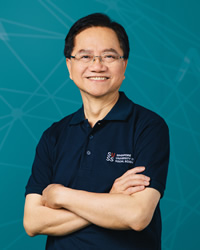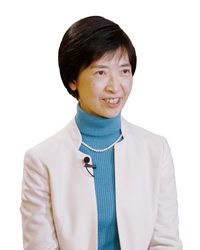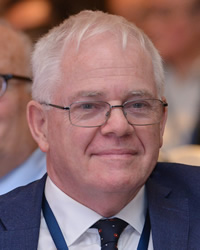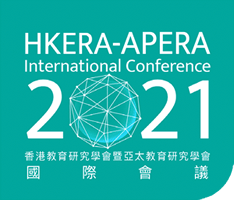
HK Time: 28 Feb 2023 01:13:54

| Keynote Speech 1 |
| Women, Faith and Sustainability: A Dialogue among Asian Civilizations Ruth HAYHOE, OISE, University of Toronto, Canada Maria MANZON, Department of Education, Sophia University, Japan Abstract: Women have had a long engagement with sustainability in Asia, and this has been notably rooted in their faith traditions. Women have been particularly sensitive and open to forms of wisdom and knowledge available in other civilizations which could help to solve some of the unintended consequences of progress. They are more likely to embrace a multi-faceted approach to knowledge and an openness to forms of dialogue that include moral, affective and aesthetic understanding, as well as cognitive. Yet their roles and contributions are not a main point of reference in global discourses. We explore the other ways of being, knowing, and acting that are evident in women’s educational leadership and how they may foster an integral, holistic understanding and an inclusive approach to sustainable futures. We draw portraits of influential women educators in several East Asian civilizations, and share dialogues with them that have been important in our personal journeys in comparative education. |
| Keynote Speech 2 |
| Beyond the Centre-Periphery Framework in Higher Education Studies Simon MARGINSON, Department of Education, University of Oxford, UK Abstract: The paper argues that as political economic and higher education capacity become more diffused across the world, and diverse cultures and languages are acknowledged, normalising the sector in the basis of the hitherto dominant Western (and primarily Anglo-American) model of the university, for example the templates used in global rankings, is less and less appropriate. In general and in higher education, the times call for an approach grounded not in Western hegemony and its isomorphic echoes but in unity in diversity, heer butong, in which we identify global systems and common ethical ground that enables us to sustain a relational environment, while acknowledging – indeed, celebrating - the nationally-culturally nested and locally variant nature of higher education and science. On one hand this suggests identification of common protocols and rights, including respect for the other. On the other hand it suggests tolerating variations in relation to institutional autonomy, given the diversity of political cultures and state formations, recognising the culturally nested nature of academic freedoms, and in epistemic organisation, working with the de Sousa Santos’ ‘ecology of knowledge’s’ approach. These ideas are illustrated with similarities and differences between Sinitic (Chinese civilisational) and Anglo-American approaches to higher education and knowledge, as well as wry reflections on geo-political efforts to engineer a sharp East/West polarisation and maintain Western domination over China. |
| Keynote Speech 3 |
| What about the Development of Continuing Education and Training: The Case of IAL in Singapore? Wing-on LEE, Institute for Adult Learning, Singapore University of Social Sciences, Singapore Abstract: This presentation aims to share how the Institute for Adult Learning (IAL) in Singapore has delivered its missions over the past decade in developing training programmes for adult educators, with efforts to further professionalise the TAE Sector, and upgrade adult educators as professionals (AEP). In order to create a Community of Practice (CoP) for these adult educators, IAL set up an AE Network (AEN), and further established a Learning Enterprise Alliance (LEA) as the CoP for the enterprises. On the front of adult learning pedagogy, IAL has developed indigenous pedagogical approaches in order to meet the learning needs of its learners. The six principles of learning design is the best known pedagogy developed in IAL. On the front of learning for innovation, IAL provides a platform to invite adult educators, learning soluntionists and enterprises to collaborate, trigger and incubate innovation ideas, as represented by iN.LAB’s innovation series. IAL has only a short history of just more than a decade, it shows the institutionalisation effects on advancing continuing education and training, as demonstrated by its achievements in enhancing the various initiatives such as AEP, AEN, and LEA; developing indigenous pedagogy for adult learners; and developing learning for innovation agenda. |
| Keynote Speech 4 |
| Dead ideas, Missing Ideas, and Enduring Idea(l)s: Some Perspectives on Teacher Education for Connectivity, Inclusivity and Sustainability A. Lin GOODWIN, Faculty of Education, The University of Hong Kong, Hong Kong Abstract: The events of the past two years, dominated by the COVID-19 pandemic, have had an indelible effect on just about every aspect of our lives, especially teaching and learning for our children. The good news is that everyone, whether parents, public citizens or policy makers, has developed greater clarity about the essential role that teachers play, not just in the instruction of young people, but in holding up society and ensuring economic progress and smooth social functioning. But heightened consciousness around the importance of teachers and schools has been accompanied by greater awareness of shortcomings in education systems. There is a renewed call for teachers to be equipped to meet the demands of the “new normal.” It is not surprising then that just about everyone, including educators themselves, has jumped into the conversation about improving teaching and teachers, which in turn means re-imagining teacher preparation. In Hong Kong as well as internationally, teacher development has become a central focus. Teacher educators are re-tackling the question of what teachers should know and be able to do in the face of current imperatives—digital divides and numerous inequities, vast economic upheaval, racism and social unrest, political disorder, and more. At the same time, teacher preparation must also be forward looking, nurturing teachers who are ready to support students who can navigate the unknown and create a better and more inclusive future. This question is not easily answered and will likely be answered in different ways by educators in different contexts. In her talk, Professor Goodwin offers three perspectives teacher educators can use, regardless of their unique contexts, to examine the familiar, that is teacher education as they know (and do) it, in order to imagine the strange—teacher education as it might possibly be. To ignite re-thinking, she suggests teacher educators look for:
|
